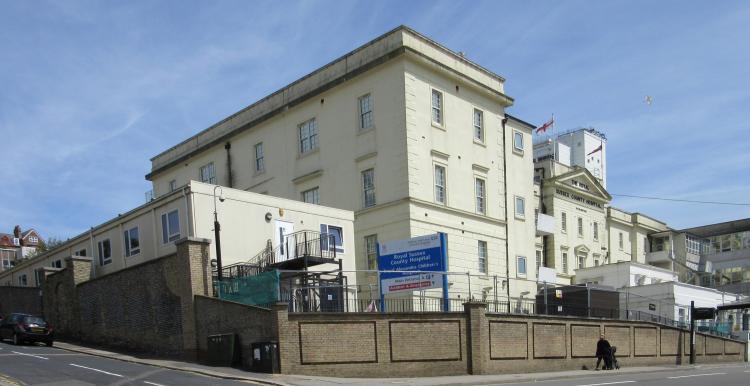Information for public during the ambulance and nursing industrial action

The NHS is Sussex is preparing for industrial action next week by Royal College of Nursing and ambulance workers to ensure that patients can continue to get the help and care they need.
The public are being advised that regardless of industrial action, emergency care will continue and people should continue to contact 999 or attend an Emergency Department for a life-saving emergency.
The action is expected to include staff from East Sussex Healthcare NHS Trust, Queen Victoria NHS Foundation Trust, University Hospitals Sussex NHS Foundation Trust, and our two ambulance providers – South East Coast Ambulance Service NHS Foundation and South Central Ambulance Service NHS Foundation Trust (SCAS).
It does not include nurses working in community services, mental health services or GP practices.
Advice for the public and patients
It is important the public play their part and ‘Help Us Help You’ to ensure everyone gets the care and support they need. Local people are asked to take the following actions:
- Think very carefully about choosing the most appropriate NHS service for your needs and only use 999 and A&E departments for serious or life-threatening emergencies, such as chest pain, severe bleeding or breathing difficulties.
- If you do need support and care, it may take longer than you might expect to be seen and treated, so please be patient and continue to use the most appropriate service for your needs.
- Please collect family and friends from hospital as soon as they are ready to be discharged, and support the discharge process to available community beds, to allow acute hospital beds to be freed up for those who need them most.
- If you do have loved ones in hospital, please think considerately about calling wards to speak to local teams. You are still able to visit but the nurses and teams working on wards will be focused on caring for patients.
- Stay away from our hospitals if you have symptoms of flu or Covid or have been in contact with someone who has tested positive for COVID-19, unless it is an emergency.
- Keep yourself protected and boost your immunity with COVID-19 and flu vaccinations if you are eligible.
All the information to help you know which services are available to you and how you access them is available on the Sussex Health and Care website.
Frequently asked questions
What if I have a hospital appointment or patient transport planned on a strike day?
Everyone who has an appointment should attend as planned, unless your local NHS provider has contacted you to reschedule. If we have not contacted you, please attend your appointment even if your hospital trust is affected by strikes.
When will I find out if my appointment is rescheduled?
The NHS will contact you if your appointment or patient transport needs to be rescheduled due to strike action. This is likely to be a letter or phone call, and you should be offered an alternative date for your appointment. If we have not contacted you, please attend your appointment as planned
Is there anything I should do now?
No, the NHS will contact you if your appointment needs to be rescheduled due to strike action.
Should I cancel my appointment on the day of strikes?
No, if we have not contacted you, please attend your appointment as planned.
Will emergency care be affected on strike days?
Emergency care will continue to be available across all parts of the country. It is really important that in emergency and life-threatening cases – when someone is seriously ill or their life is at risk patients continue to come forward as normal.
What is considered an emergency?
Patients should only call 999 if seriously ill or injured, or there is risk to life. Ambulances will be dispatched where clinically appropriate.
What should I do if I need an ambulance?
On strike days, patients should only call 999 if seriously ill or injured, and there is risk to life. Ambulances will be dispatched where clinically appropriate.
For all other health care needs support will be available through NHS 111 online, via the NHS 111 helpline or at your local GP or pharmacy.
The NHS.UK website has more information on when to call 999 and when to go to A&E.